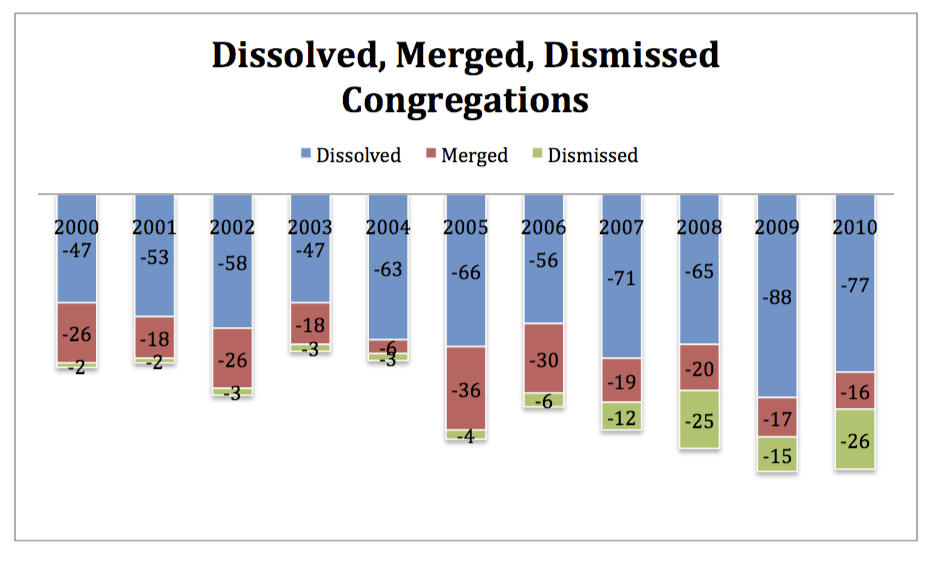Planning for a vital future

I’m chairing a committee that just finished its initial
report for the national assembly of Presbyterian Church (U.S.A.). We were charged with
making plans for our common future. Of course, these finding are from our denomination, but I think they’re
instructive for most mainline traditions.
We have lost an increasing number of congregations. In fact,
in 2010, we lost almost 10 churches per month. Most of these congregations had
good, long lives and ministries that we celebrate, and now they have come to
end of their lifespan.






